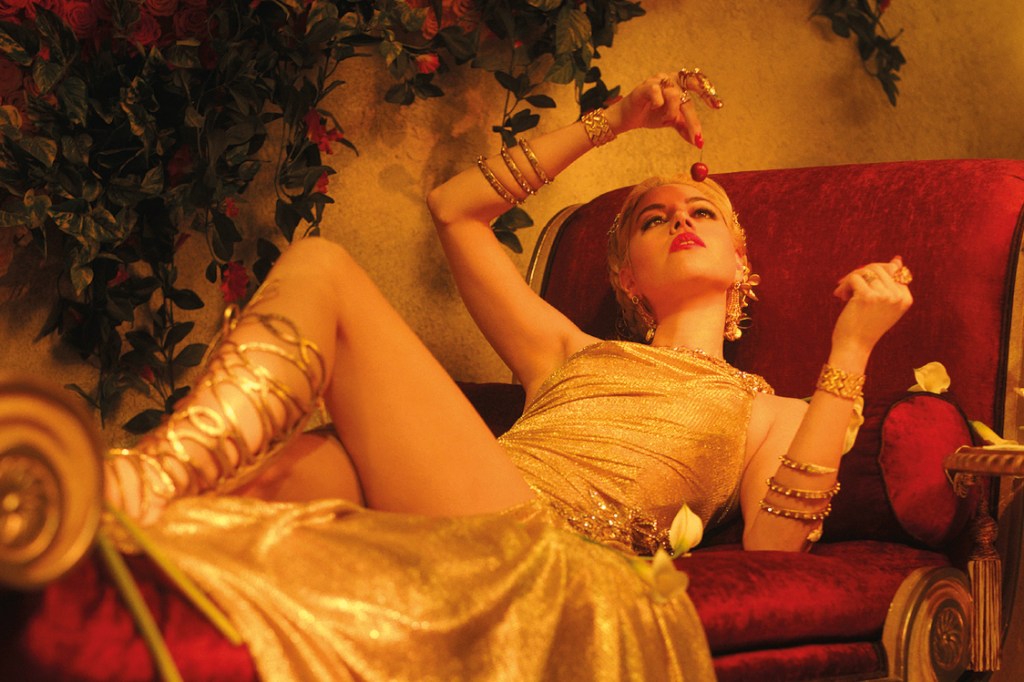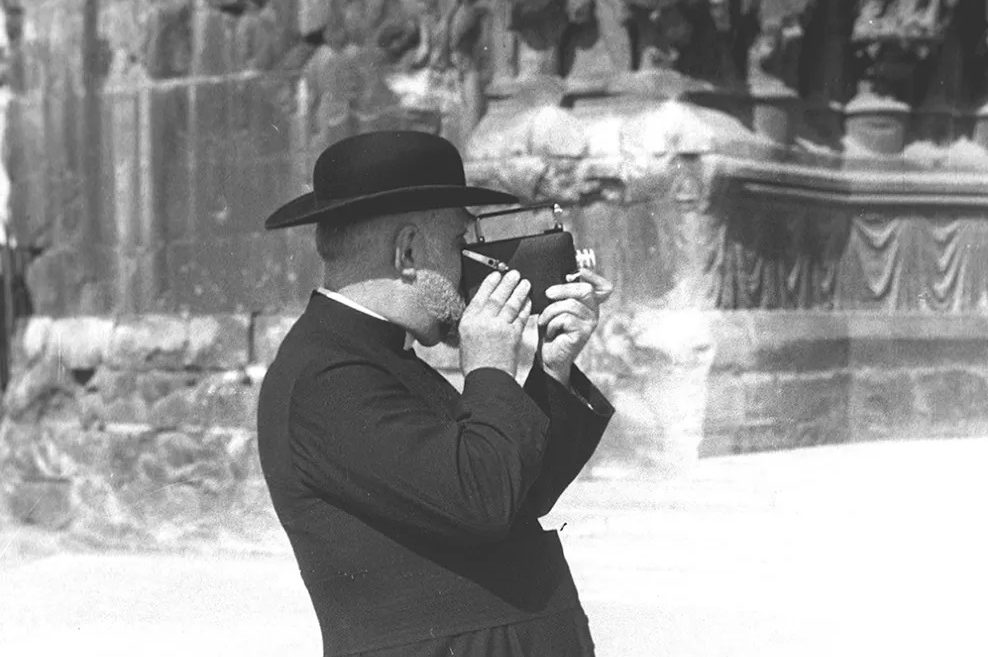Megalopolis, which draws parallels between the fall of the Roman empire and modern-day America, is a film by Francis Ford Coppola — and it couldn’t, in fact, be more by Francis Ford Coppola if it tried.
He wrote, produced, directed and self-financed it ($120 million; ouch) and even found the time to be its greatest fan. On the film review sharing platform Letterboxd he has awarded it five stars. Way to go, Francis. We’re behind you even though, to be honest, you lost us quite early on. The movie is often baffling, and plainly nuts, but I’d prefer to see something baffling and plainly nuts by Francis Ford Coppola than, say, sit through Dune again.
The script, when it’s not being declamatory, offers lines like: ‘Don’t let the now destroy the forever’
This is a passion project, or, if we are being mean, a vanity project, but as Coppola is the recipient of five Oscars and has The Godfather films as well as The Conversation and Apocalypse Now to his name, he has surely earned the right to do as he damn well pleases. It’ll be called “Megaflopolis” in some quarters, you watch, but if you’ve got that kind of money knocking about what might he have better spent it on? A yacht? Buying Twitter? When that would have deprived us of seeing Dustin Hoffman wandering around looking just as baffled as we are?
The film is based on the Catilinarian conspiracy of 63 BC but set around now in “New Rome.” This is recognizably New York but with a sci-fi take. There’s a colosseum for gruesome sports and everyone is attired in quasi-Roman dress, for example. In one corner we have Catilina, played by Adam Driver at his most Adam Drivery (intense, over the top). Catilina is a Nobel Prize-winning scientist and a visionary architect. He has invented a new material, Megalon (which is moldable and not perishable), believes this civilization has come to its end and dreams of building a new city without corruption, greed or debt. He also has a magical ability. He can stop time until he can’t stop time and then can again, although don’t hold your breath waiting for that to be explained.
In the other corner, we have his sworn enemy, Mayor Cicero (Giancarlo Esposito), who wants to keep to the old ways. He is backed by a rich banker, Crassus III, played by Jon Voight (who now looks startlingly like Dame Judi Dench). Meanwhile, Dustin Hoffman is still wandering round looking lost. He may be Crassus’s right-hand man, it’s never clear.
On the woman front, we have Julia (Nathalie Emmanuel), the daughter of the mayor who has the hots for Catilina, thereby creating a Montague-Capulet clash, and a TV reporter, Wow Platinum (Aubrey Plaza), who also has the hots for him. There is nothing sexier than a megalomaniac architect, I think we can deduce. While it wants to bring many ideas to the table and quotes Shakespeare, Marcus Aurelius and Plutarch, it doesn’t actually have anything to say for itself. This utopia you dream of, Catilina, how will it be funded? How will it work exactly? No answers are forthcoming. The script, when it’s not being declamatory, offers lines like: “Don’t let the now destroy the forever.” Or: “By a leap into the unknown we know we are free.” I felt as if I were being beaten around the head by an inspirational quote book.
It is like a cheese dream, with one bizarre scene after another, some of which we leave midway through. That said, the film also forces us to ask some important questions, such as why is Shia LaBeouf, who plays Crassus’s nephew, suddenly wearing women’s clothes and goose-stepping?
Ultimately it’s worth it for the sheer lunacy and ego on display and I wasn’t bored for a single minute. I don’t know if Coppola also ran the catering van, but I think we can assume so.
This article was originally published in The Spectator’s UK magazine. Subscribe to the World edition here.






















Leave a Reply